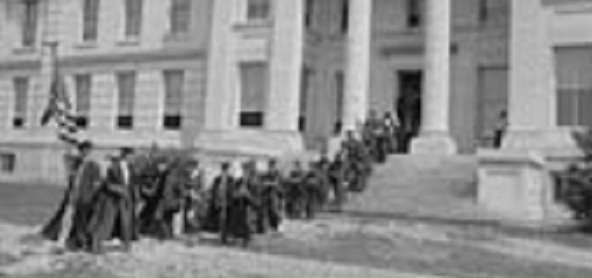Professor Timothy Reese Cain authors book about academic freedom
by Allie Pitcher / Nov 9, 2012

 Timothy Reese Cain, assistant professor in Education Policy, Organization and Leadership, is the author of a new book titled Establishing Academic Freedom: Politics, Principles, and the Development of Core Values.
Timothy Reese Cain, assistant professor in Education Policy, Organization and Leadership, is the author of a new book titled Establishing Academic Freedom: Politics, Principles, and the Development of Core Values.
With an interest in the history of education throughout the 20th century, Cain argues through his book that “the period from 1915 through 1941 was the crucial one that saw the development of modern ideas of academic freedom, and also the procedural protections of tenure that help support academic freedom.”
In conceptualizing his book, Cain recognized that there was a significant gap in the literature that analyzed the historical developments and movements of academic freedom during this crucial period. “I tried to look at both the individual faculty experiences when their academic freedom was being challenged and the organizational interactions of education groups,” Cain said. “I looked at how they interacted to try to create what we currently regard as core values of higher education.”
Cain also argues that modern education over the past 30 years has begun to “demolish this standard that was set up 75 years ago,” adding that higher education has strayed from the academic principles of tenure and relies on contingent or adjunct faculty who have significantly fewer protections.
In examining the details of academic freedom both in the early-mid 20th century and today, Cain believes that it made him think more about the conditions of faculty work on this campus and evaluate his own position as a professor.
“Due to the very fact that I hold a tenure track position in an institution such as this, I have very different opportunities and possibilities,” Cain said. “For example, I can do research that is not necessarily going to make everybody happy, but can be valuable.” Most faculty, though, do not have such ability due to the tenuous nature of their appointments, according to Cain.
Although a scholarly work, Cain hopes his book reaches a wider audience and informs others about the dealings of academic freedom in the higher education system.
The book fits within Cain’s broader research agenda examining the history of higher education in the 20th century and emphasizing issues of stakeholder rights and responsibilities. Some of his other works are focused the histories of faculty unionization and of student speech rights.